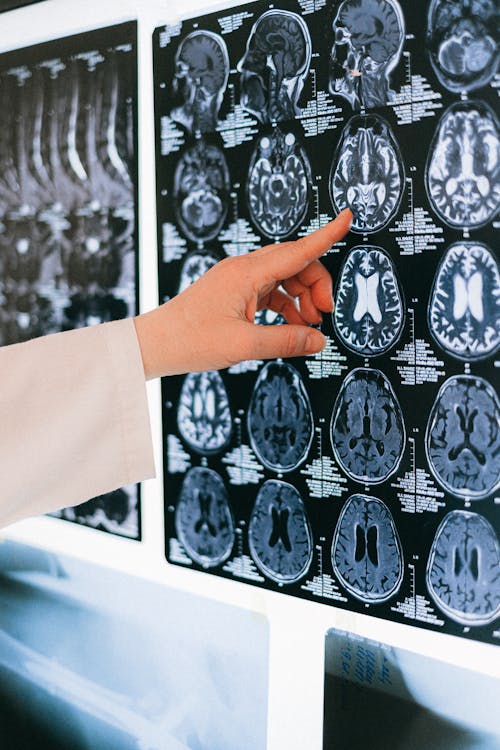Understanding Brain Tumor: Myths, Facts, and Prevention
Brain tumors are often one of the most misunderstood medical diagnoses, largely due to the fear and stigma surrounding the word “tumor.” While it can be alarming to be told that you have a tumor, it’s essential to understand that a tumor is merely a mass of abnormal cells. This mass can be either benign (non-cancerous) or malignant (cancerous), and although some tumors are life-threatening, the majority are not. In fact, about 90% of tumors are benign, posing no immediate threat.
Brain tumors, though rare, can present a unique set of challenges. Whether benign or malignant, they can still have significant effects on a person’s health, and early detection plays a crucial role in managing these conditions. Let’s take a closer look at what brain tumors are, what causes them, and what steps can be taken to reduce the risk of developing one.
What Is a Brain Tumor?
A brain tumor, much like any other tumor, is an abnormal growth of cells. These tumors can vary in size and location, and their impact depends largely on whether they are benign or malignant. Benign brain tumors, although slow-growing and less aggressive, can still cause serious issues due to their location within the brain. These tumors tend to have distinct borders and do not spread to other areas of the body.
In contrast, malignant brain tumors are far more aggressive. They grow quickly and can invade nearby brain structures, making them particularly difficult to treat. Dr. Andrea Cercek, a gastrointestinal oncologist at Memorial Sloan Kettering Cancer Center, notes that these tumors can be very challenging to eradicate due to their rapid spread and aggressive nature.
Brain tumors are classified into two main categories:
- Primary brain tumors – These originate in the brain itself and include both benign and malignant types. Only about 90,000 people are diagnosed with a primary brain tumor each year.
- Secondary brain tumors – These are more common and result from cancer that has spread to the brain from another part of the body, such as the lungs or breasts.
Regardless of whether a tumor is primary or secondary, its presence in the brain can be concerning, as even benign tumors can have serious consequences.
The Unique Challenge of Brain Tumors
What makes brain tumors particularly worrisome is not just their potential to be cancerous but their ability to affect the brain’s vital functions. The brain controls essential bodily processes, including movement, memory, emotions, motor skills, and vision. Therefore, even benign brain tumors, if left untreated, can compress areas of the brain, leading to significant issues like muscle weakness, paralysis, speech problems, or seizures.
“Brain tumors can impact all of these functions if a mass starts taking up space inside the skull and increases pressure on the brain,” explains Dr. Julie Gralow, chief medical officer at the American Society of Clinical Oncology.
Causes and Risk Factors of Brain Tumors
The exact cause of brain tumors is still largely unknown, but several risk factors may contribute to their development:
- Age – As people age, their immune systems tend to weaken, making it harder for the body to detect and destroy abnormal cells. This is why brain tumors are more common in older adults.
- Genetics – A family history of brain tumors or certain genetic disorders can increase the risk of developing a tumor.
- Exposure to radiation – Ionizing radiation, especially in childhood, is a well-established risk factor for brain tumors. Children treated with radiation for conditions like leukemia, for example, are at a higher risk of developing brain tumors later in life. Environmental factors like electromagnetic waves or air pollution may also play a role, though more research is needed to establish these links.
- Previous brain injuries – Some studies suggest that traumatic brain injuries may be linked to an increased risk of tumor formation.
- Weakened immune system – People with immune system disorders, such as HIV/AIDS, are more susceptible to tumors, as their bodies are less able to fight off abnormal cells.
Prevention: Can Brain Tumors Be Prevented?
While it’s impossible to prevent tumors entirely, certain lifestyle choices and practices can reduce the risk of developing one:
- Avoid smoking – Smoking is linked to various cancers, and avoiding it can lower the risk of developing tumors, including brain tumors.
- Minimize radiation exposure – Avoid unnecessary exposure to ionizing radiation, particularly in children. Pregnant women and children should only undergo CT scans when absolutely necessary.
- Strengthen the immune system – A strong immune system helps identify and destroy abnormal cells before they form tumors. Immune health can be maintained by getting enough sleep, managing stress, eating a balanced diet, and exercising regularly.
Recognizing Symptoms of a Brain Tumor
Brain tumors often present with subtle symptoms, which can be mistaken for other common conditions. Some of the symptoms to watch out for include:
- Persistent headaches, especially in the morning
- Difficulty with speech or memory
- Weakness or numbness on one side of the body
- Changes in vision or loss of balance
- Seizures
If these symptoms persist or worsen, it’s essential to see a doctor. Diagnosis usually involves imaging tests like MRIs or CT scans, followed by a biopsy to determine whether the tumor is benign or malignant.
Treatment Options for Brain Tumors
Once diagnosed, treatment options depend on the type, size, and location of the tumor. Surgery is often the first step, especially for benign tumors that are causing pressure on the brain. Malignant tumors may require a combination of treatments, including:
- Surgery – Removing as much of the tumor as possible without damaging the surrounding brain tissue.
- Radiation therapy – Using high-energy rays to destroy cancer cells.
- Chemotherapy – Medications that target and kill cancer cells, often used in conjunction with radiation therapy.
- Targeted therapy – These newer treatments focus on specific molecules involved in tumor growth and may offer less toxic alternatives to chemotherapy.
Conclusion: The Importance of Early Detection
While brain tumors are rare, their impact on health can be significant. Early detection and treatment are crucial to improving outcomes, and taking steps to reduce risk factors, such as avoiding radiation exposure and maintaining a healthy immune system, can help in prevention.
Understanding the nature of brain tumors, the potential risk factors, and treatment options can help demystify the condition, allowing patients to take proactive steps toward managing their health. As research advances, hope continues to grow for better treatment options and, ultimately, a cure
Read more articles on Wellness Central USA.



No responses yet